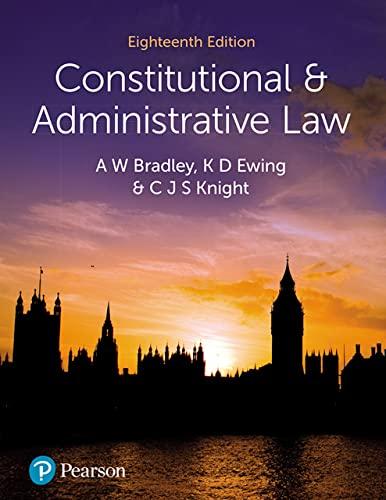Question
How should I reply? 1. At first glance, my thought is that ERISA's most valuable contribution is protecting against the nefarious side of human nature.
How should I reply?
1.
At first glance, my thought is that ERISA's most valuable contribution is protecting against the nefarious side of human nature. A big fat pot of untouched money, just sitting there gathering dust (and interest) could be a powerful motivator for fraudulent or dishonest acts. ERISA provides and clarifies a set of regulatory and fiduciary obligations so that the wolf guarding the henhouse doesn't get any bright ideas about gambling the money away, spending it on shorter term needs and wants, or the like. One has to wonder how many bad actors chose not to act badly since the inception of ERISA in 1974 when significant events arose. Would any of the dot-com bubble-bursters raided this nest egg in early 2000 to prolong the inevitable if they had access to the monies, or if they did not fear any form of legal reprisal? Or similarly in 2008 during the Great Recession, would companies have found themselves underwater and dipped into an un-ERISA-governed retirement fund? Hard to say, but given how events like this played out pre-ERISA (see Studebaker), it's likely that employees with an unregulated and ungoverned pension fund would have been very disappointed in lots of those scenarios.
2.
Congress passed ERISA in 1974 to protect employees rights such as their pension, retirement, and other benefit plans offered by their employers. Prior to ERISA's enactment, employees often faced difficulties in receiving their entitled benefits for reasons such as mismanagement of funds, bankruptcies, and closures. ERISA was created to address these challenges and protect employees' benefits. One example showing the necessity for ERISA was the Studebaker plant closure in 1963. Following the closure, investigations revealed that the poorly funded pension plan left many of their employees without their vested pension benefits. ERISA, with its built-in employee protections, sought to prevent such situations and provide safeguards for employees' financial well-being. A historical event to note would be The Great Recession of 2008. TGR 2008 caused a significant decline in the value of many pension plans' investments, leading to some plans to reduce benefits or even go bankrupt. The recession also led to an increase in employee layoffs, which meant that employees lost their jobs before being able to vest their retirement benefits. This event underscored the importance of ERISA's funding requirements and vesting rules. The statute acknowledges that it doesn't prevent companies from facing financial hardships and market downturns, but it serves as a crucial protection during such circumstances.
Step by Step Solution
There are 3 Steps involved in it
Step: 1

Get Instant Access to Expert-Tailored Solutions
See step-by-step solutions with expert insights and AI powered tools for academic success
Step: 2

Step: 3

Ace Your Homework with AI
Get the answers you need in no time with our AI-driven, step-by-step assistance
Get Started


